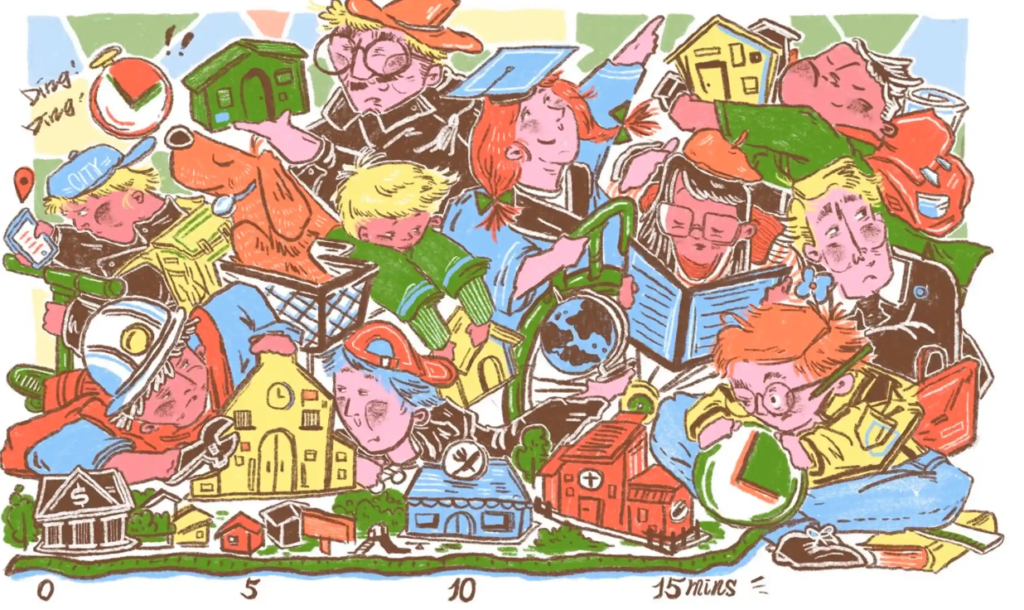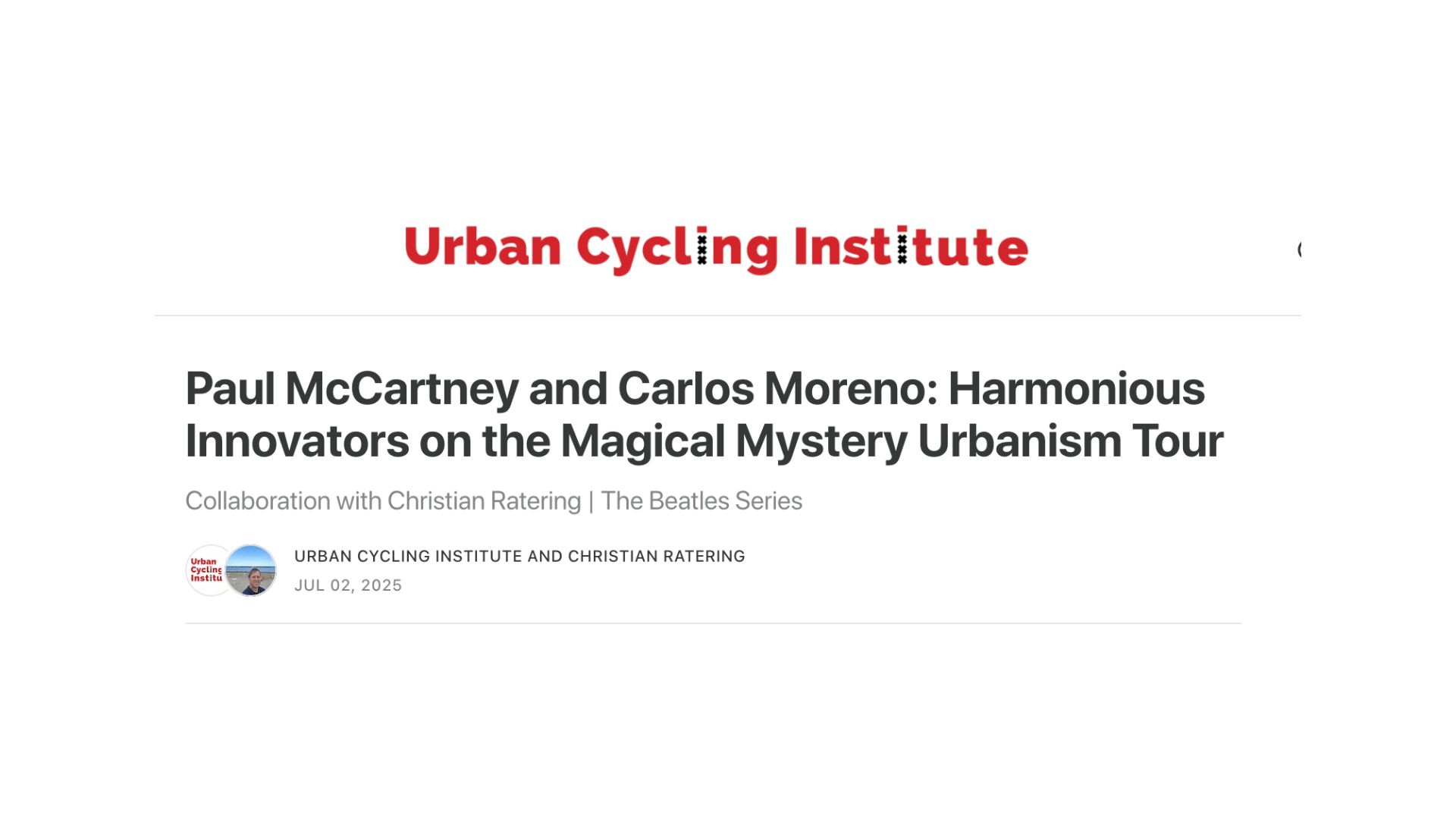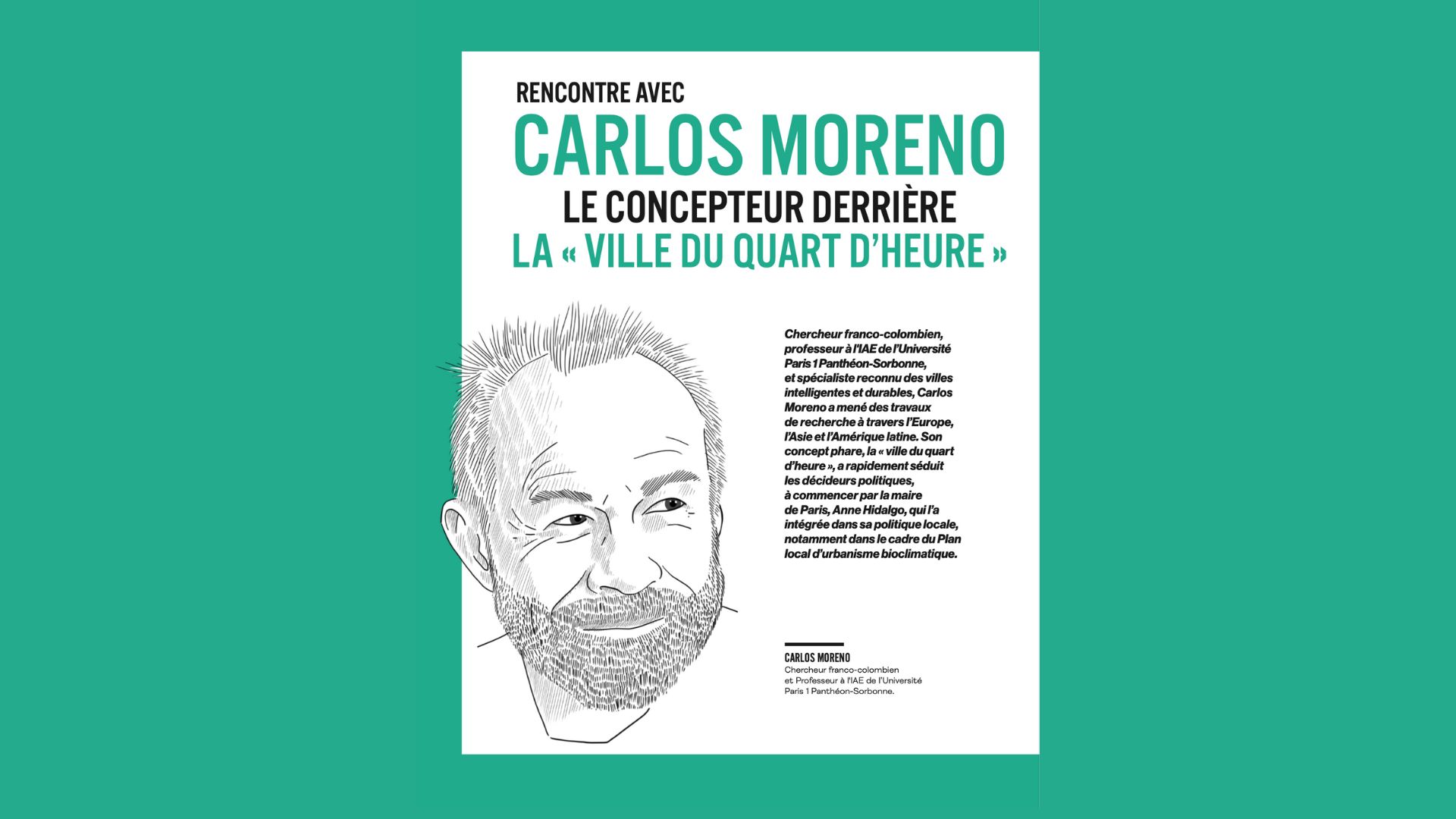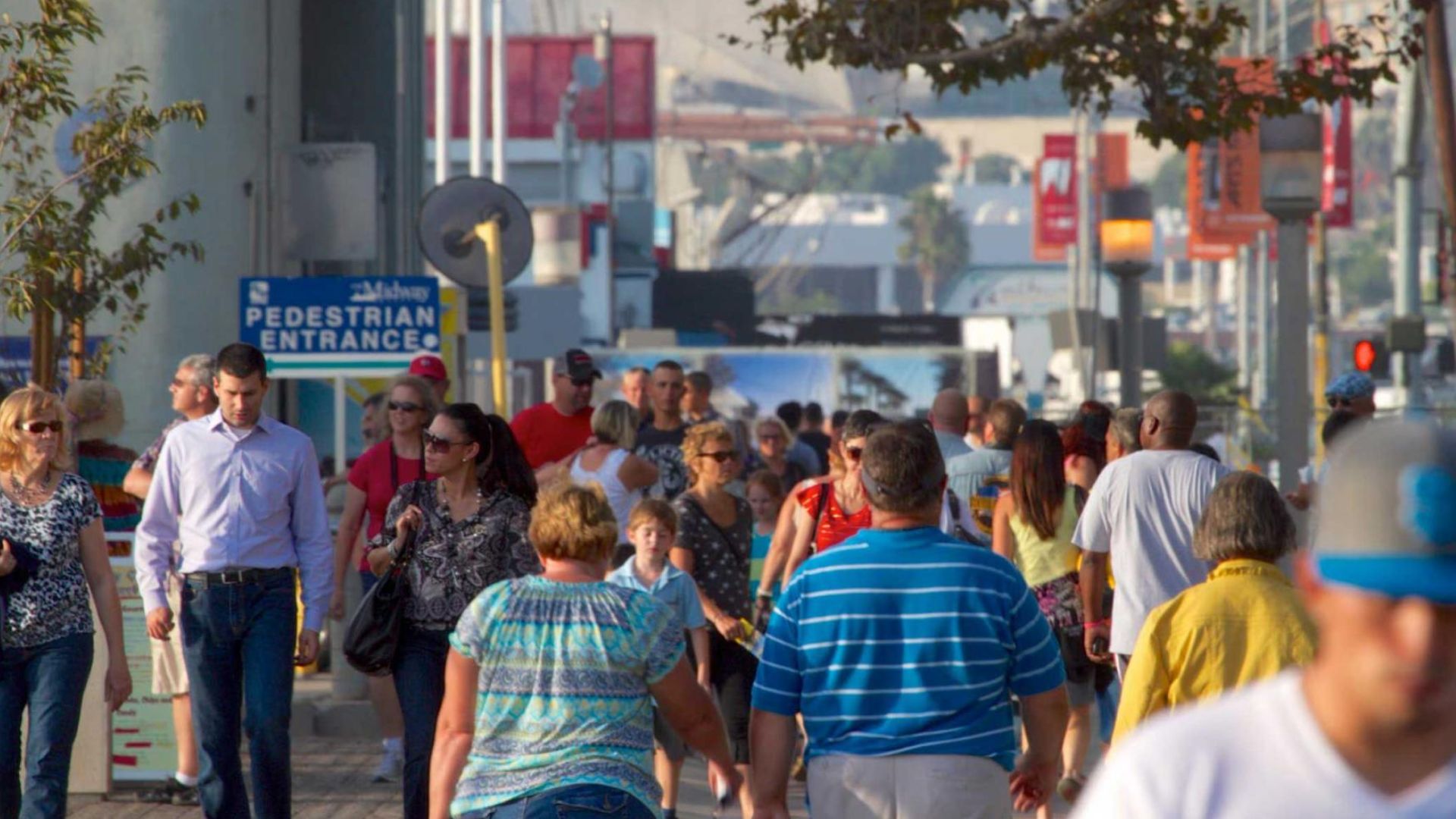“The term itself was coined by Carlos Moreno, a scientist at the Sorbonne who first promoted la ville du quart d’heure in 2016. He dreamed up a city where “in less than 15 minutes, a resident can access his essential life needs”. (“Chrono-urbanism” emerged a decade ago and prompted experiments in metropolises such as Portland, Oregon, and Melbourne, Australia, which set their watches on 20 minutes.) Substantively, Moreno’s conditions were not so different from existing tenets of progressive city planning, such as walkability, smart growth, mixed-use zoning, “missing middle” housing and ending food deserts. But the 15-minute city felt like less of an obligation than an opportunity.”





